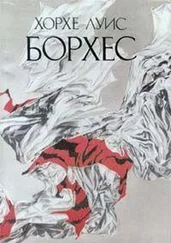Хорхе Борхес - Collected Fictions
Здесь есть возможность читать онлайн «Хорхе Борхес - Collected Fictions» весь текст электронной книги совершенно бесплатно (целиком полную версию без сокращений). В некоторых случаях можно слушать аудио, скачать через торрент в формате fb2 и присутствует краткое содержание. Год выпуска: 1999, ISBN: 1999, Издательство: Penguin (UK), Жанр: Старинная литература, на английском языке. Описание произведения, (предисловие) а так же отзывы посетителей доступны на портале библиотеки ЛибКат.
- Название:Collected Fictions
- Автор:
- Издательство:Penguin (UK)
- Жанр:
- Год:1999
- ISBN:9780140286809
- Рейтинг книги:5 / 5. Голосов: 1
-
Избранное:Добавить в избранное
- Отзывы:
-
Ваша оценка:
- 100
- 1
- 2
- 3
- 4
- 5
Collected Fictions: краткое содержание, описание и аннотация
Предлагаем к чтению аннотацию, описание, краткое содержание или предисловие (зависит от того, что написал сам автор книги «Collected Fictions»). Если вы не нашли необходимую информацию о книге — напишите в комментариях, мы постараемся отыскать её.
Collected Fictions — читать онлайн бесплатно полную книгу (весь текст) целиком
Ниже представлен текст книги, разбитый по страницам. Система сохранения места последней прочитанной страницы, позволяет с удобством читать онлайн бесплатно книгу «Collected Fictions», без необходимости каждый раз заново искать на чём Вы остановились. Поставьте закладку, и сможете в любой момент перейти на страницу, на которой закончили чтение.
Интервал:
Закладка:
In that text, which is written in the accents of the toughs and petty criminals of the Buenos Aires underworld, the reader will note that I have interpolated a number of “cultured” words - entrails, conversion , etc. I did this because the tough, the knife fighter, the thug, the type that Buenos Aires calls the compadre or compadrito, aspires to refinement, or (and this reason excludes the other, but it may be the true one) because compadres are individuals and don't always talk like The Compadre, which is a Platonic ideal.
The learned doctors of the Great Vehicle teach us that the essential characteristic of the universe is its emptiness. They are certainly correct with respect to the tiny part of the universe that is this book. Gallows and pirates fill its pages, and that word iniquity strikes awe in its title, but under all the storm and lightning, there is nothing. It is all just appearance, a surface of images—which is why readers may, perhaps, enjoy it. The man who made it was a pitiable sort of creature, but he found amusement in writing it; it is to be hoped that some echo of that pleasure may reach its readers.
In the section called Et cetera I have added three new pieces.
J. L. B.
The Cruel Redeemer Lazarus Morell
THE REMOTE CAUSE
In 1517, Fray Bartolomé de las Casas, feeling great pity for the Indians who grew worn and lean in the drudging infernos of the Antillean gold mines, proposed to Emperor Charles V that Negroes be brought to the isles of the Caribbean, so that they might grow worn and lean in the drudging infernos of the Antillean gold mines. To that odd variant on the species philanthropist we owe an infinitude of things: W. C. Handy's blues; the success achieved in Paris by the Uruguayan attorney-painter Pedro Figari*; the fine runaway-slave prose of the likewise Uruguayan Vicente Rossi*; the mythological stature of Abraham Lincoln; the half-million dead of the War of Secession; the $3.3 billion spent on military pensions; the statue of the imaginary semblance of Antonio (Falucho) Ruiz*; the inclusion of the verb "lynch" in respectable dictionaries; the impetuous King Vidor film Hallelujah; the stout bayonet charge of the regiment of "Blacks and Tans" (the color of their skins, not their uniforms) against that famous hill near Montevideo*; the gracefulness of certain elegant young ladies; the black man who killed Martín Fierro; that deplorable rumba The Peanut-Seller; the arrested and imprisoned Napoleonism of Toussaint L'Ouverture; the cross and the serpent in Haiti; the blood of goats whose throats are slashed by the papalois machete; the habanera that is the mother of the tango; the candombe.
And yet another thing: the evil and magnificent existence of the cruel redeemer Lazarus Morell.*
THE PLACE
The Father of Waters, the Mississippi, the grandest river in the world, was the worthy stage for the deeds of that incomparable blackguard. (Alvarezde Pineda discovered this great river, though it was first explored by Hernando de Soto, conqueror of Peru, who whiled away his months in the prison of the Inca Atahualpa teaching his jailer chess. When de Soto died, the river's waters were his grave.)
The Mississippi is a broad-chested river, a dark and infinite brother of the Paraná, the Uruguay, the Amazon, and the Orinoco. It is a river of mulatto-hued water; more than four hundred million tons of mud, carried by that water, insult the Gulf of Mexico each year. All that venerable and ancient waste has created a delta where gigantic swamp cypresses grow from the slough of a continent in perpetual dissolution and where labyrinths of clay, dead fish, and swamp reeds push out the borders and extend the peace of their fetid empire. Upstream, Arkansas and Ohio have their bottom-lands, too, populated by a jaundiced and hungry-looking race, prone to fevers, whose eyes gleam at the sight of stone and iron, for they know only sand and driftwood and muddy water.
THE MEN
In the early nineteenth century (the period that interests us) the vast cotton plantations on the riverbanks were worked from sunup to sundown by Negro slaves. They slept in wooden cabins on dirt floors. Apart from the mother-child relationship, kinship was conventional and murky; the slaves had given names, but not always surnames. They did not know how to read. Their soft falsetto voices sang an English of drawn-out vowels. They worked in rows, stooped under the overseer's lash. They would try to escape, and men with full beards would leap astride beautiful horses to hunt them down with baying dogs.
Onto an alluvium of beast-like hopefulness and African fear there had sifted the words of the Scripture; their faith, therefore, was Christian. Go down, Moses, they would sing, low and in unison. The Mississippi served them as a magnificent image of the sordid Jordan.
The owners of that hard-worked land and those bands of Negroes were idlers, greedy gentlemen with long hair who lived in wide-fronted mansions that looked out upon the river—their porches always pseudo-Greek with columns made of soft white pine. Good slaves cost a thousand dollars, but they didn't last long. Some were so ungrateful as to sicken and die. A man had to get the most he could out of such uncertain investments. That was why the slaves were in the fields from sunup to sundown; that was why the fields were made to yield up their cotton or tobacco or sugarcane every year. The female soil, worn and haggard from bearing that impatient culture's get, was left barren within a few years, and a formless, clayey desert crept into the plantations.
On broken-down farms, on the outskirts of the cities, in dense fields of sugarcane, and on abject mud flats lived the "poor whites"; they were fisher-men, sometime hunters, horse thieves. They would sometimes even beg pieces of stolen food from the Negroes. And yet in their prostration they held one point of pride—their blood, untainted by "the cross of color" and unmixed. Lazarus Morell was one of these men.
THE MAN
The daguerreotypes printed in American magazines are not actually of Morell. That absence of a genuine likeness of a man as memorable and famous as Morell cannot be coincidental. It is probably safe to assume that Morell refused to sit for the silvered plate—essentially, so as to leave no pointless traces; incidentally, so as to enhance his mystery.... We do know, however, that he was not particularly good-looking as a young man and that his close-set eyes and thin lips did not conspire in his favor. The years, as time went on, imparted to him that peculiar majesty that white-haired blackguards, successful (and unpunished) criminals, seem generally to possess. He was a Southern gentleman of the old school, in spite of his impoverished childhood and his shameful life. He was not ignorant of the Scriptures, and he preached with singular conviction. "I once saw Lazarus Morell in the pulpit," wrote the owner of a gambling house in Baton Rouge, "and I heard his edifying words and saw the tears come to his eyes. I knew he was a fornicator, a nigger-stealer, and a murderer in the sight of the Lord, but tears came to my eyes too."
Another testimony to those holy outpourings is provided by Morell himself: "I opened the Bible at random, put my finger on the first verse that came to hand—St. Paul it was—and preached for an hour and twenty minutes. Crenshaw and the boys didn't put that time to bad use, neither, for they rounded up all the folks' horses and made off with 'em. We sold 'em in the state of Arkansas, all but one bay stallion, the most spirited thing you ever laid eyes on, that I kept for myself. Crenshaw had his eye on that horse, too, but I convinced him it warn't the horse for him."
Читать дальшеИнтервал:
Закладка:
Похожие книги на «Collected Fictions»
Представляем Вашему вниманию похожие книги на «Collected Fictions» списком для выбора. Мы отобрали схожую по названию и смыслу литературу в надежде предоставить читателям больше вариантов отыскать новые, интересные, ещё непрочитанные произведения.
Обсуждение, отзывы о книге «Collected Fictions» и просто собственные мнения читателей. Оставьте ваши комментарии, напишите, что Вы думаете о произведении, его смысле или главных героях. Укажите что конкретно понравилось, а что нет, и почему Вы так считаете.












